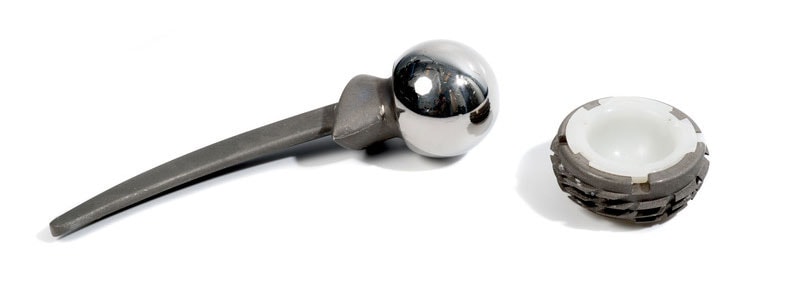Surgically implanted medical devices are one of the common causes for personal injury and require medical records review to determine the nature and extent of injury. These are man-made instruments/devices such as hernia mesh implants and metal hip replacements that surgeons use to replace a missing biological structure inside the patient’s body. Flawed medical implants cause painful injuries and internal damage that compromise patient safety.
The most commonly used medical implants include:
- Artificial joints such as hip replacements and knee implants
- Pacemakers
- Breast implants
- Cochlear implants
- Eye implants
- Transvaginal mesh
- Defibrillators
- IVC blood clot filters
Defective medical devices are a grave concern for medical providers as well as patients receiving them. Improperly designed, poorly manufactured or incorrectly labelled medical devices can cause a serious injury, adverse reaction, or even death. Complications commonly seen with defective devices are inflammation, implant rejection, and infection. Unfortunately, some people don’t recover from the harm caused by defective implants and suffer from lifetime injuries and body complications.
Why do these injuries occur and how do defective medical products escape scrutiny?
Typically, a medical device or implant is tested by the FDA before it is approved. The FDA is expected to examine each medical device for safety and efficacy. However, they are often unable to do so. Sometimes, implant manufacturers pressurize the FDA to approve a medical implant before it has been thoroughly tested. This happens because:
- There may be an urgent need for the device by some patients who require it to survive and the manufacturer wants to make it available as soon as possible.
- Manufacturers are profit-driven and want to make money on the sale.
Often, the FDA may approve a new device, implant or prosthesis from its “substantial similarity” with an already existing device. But they may not be equivalents at all.
Metal hip replacements have resulted in considerable complications when manufacturers adopted the metal-on-metal design that proved to be defective. Complications observed are fractured or broken implants, high levels of metal in the blood, swelling and pain, cobalt and chromium poisoning, implant corrosion, and bone fractures.
Hernia mesh implants have a good record, but devices manufactured by C.R. Bard and Ethicon are allegedly faulty and dangerous. They have been observed to cause hernia recurrence, bowel obstruction, and infections. Sometimes, patients may require revision surgery as well.
Proving liability is vital in a personal injury case. In a lawsuit involving defective medical devices, the liability can fall on the following entities.
- Manufacturer: The company responsible for manufacturing the product could be found liable if the device is defective
- Surgeons and their professional associates
- Hospital/other medical facility where the surgery was performed
- Medical sales representatives that represent device manufacturers when meeting with medical professionals to discuss the new device
- Testing laboratory where the device may have been tested
The injured plaintiff will have to prove that he/she was injured; the medical device was defective; and the defect was the proximate cause of his/her injury.
Proving liability in a personal injury case is challenging and the injured person should ideally be represented by a competent lawyer. Only a good lawyer can help file a personal injury lawsuit within the statute of limitations in each state. The lawyer’s expertise and professional medical review services help establish the injury so that the plaintiff can receive adequate compensation for all the pain and suffering, and the lost wages.




